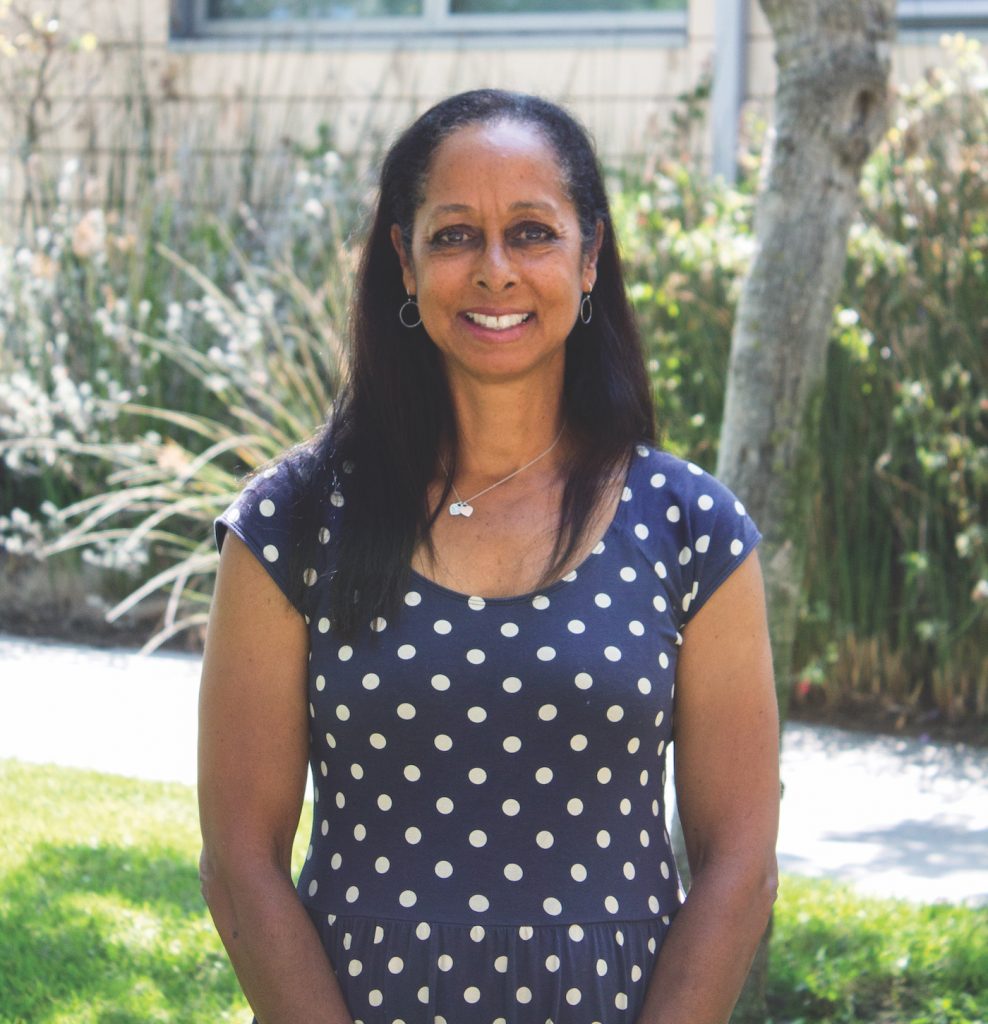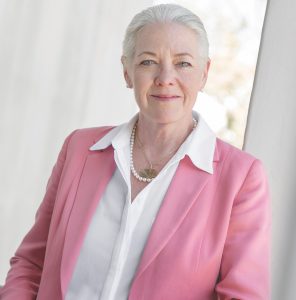Building a More Equitable UC Santa Barbara

Other than a brief stint in New York City in 1989, Katya Armistead has spent almost her entire adult life in Santa Barbara, dedicated to broadening educational opportunities for marginalized students. Through empowering these youth, Armistead sees the path to a brighter future.
“I spent a short stint in New York working at an advertising agency,” the Pasadena-born UC Santa Barbara graduate and longtime administrator says “But that experience instilled in me that being of service was something more important, so I returned to California and decided I wanted to work at UCSB.”
The move proved fruitful, and last October, Armistead – who started off as an assistant in the admissions department in 1990 and went on to earn a doctorate degree in educational leadership in 2012 – celebrated her 30th anniversary at the university. “When I started at UCSB, most of who was UC-eligible was admitted, but that has changed dramatically over the years,” Armistead says. “Now, due to the number of applicants and our elevated reputation, we have to be a lot more selective. UCSB and its famed departments have definitely seen a rise in popularity – academically speaking.”
During her tenure, the campus has seen both the construction of many new buildings and an increasingly diverse student population – many of whom are first-generation college attendees. “We went from a sleepy surfer campus to a high-quality university,” Armistead says, adding that when she first enrolled in UCSB in 1984, she felt isolated within her identity as a first-generation student of color.
“I struggled so much during my four years,” she says. “Therefore, when I started working at UCSB, I was committed to making it a better place for students of color. I had the good fortune of being in the office of admissions for 17 years and seeing us really strive to become a more accessible campus to first-generation students.”
Armistead’s initial main job in admissions was simply to bring as many students of color as possible to visit the campus. “My motto was, ‘This is as much your campus as anybody else’s,’” she recalls. “I invited alumnus to speak and give them tours, and I invited faculty members to meet them and really show them the possibility of attending the university.”
“We had a huge awakening last summer with the killing and subsequent protests of George Floyd. And with COVID-19, a lot of other inequities are becoming more apparent. Our environment is tied so much to access to food, housing, and basic needs, and the pandemic has exposed that lack of access to basic needs.”
Armistead also served as an advisor to the Black Student Union during an era when affirmative action was a politically heated issue due to the 1996 passage of Proposition 209, which outlawed race from being considered in college. She spent much of her time personally handling the concerns of minority students on campus. “I did everything I could to acknowledge their worries,” Armistead says. “They’d come to me about the discrimination they were facing, and I would take those fears to whomever was in a position to help address them.”
Aside from being an educator, Armistead is also active in Santa Barbara’s nonprofit community. In 2006 to 2007, she participated along with other young professionals in the Santa Barbara Foundation’s 18-month-long Katherine Harvey Fellows program, which raised and distributed $50,000 to benefit the cause of their choice: education. “We created our own program – Youth Making Change,” Armistead says. “It is now housed in the fund for Santa Barbara. I still mentor youth as part of that program, and we celebrated the 10th year of Youth Making Change two years ago.”
Armistead has also become involved with the Women’s Fund of Santa Barbara, joining that group’s steering committee, as well as spending a decade as a board member with the county’s Family Service Agency, where she remains on the group’s development and marketing committee.
In recent years, with the rise of Black Lives Matter activism both on campus and in the community, Armistead has helped the county’s leadership address the growing national movement toward a greater recognition of longstanding issues of social inequity in the United States. “We had a huge awakening last summer with the killing and subsequent protests of George Floyd,” she says. “And with COVID-19, a lot of other inequities are becoming more apparent. Our environment is tied so much to access to food, housing, and basic needs, and the pandemic has exposed that lack of access to basic needs.”
To Armistead, the challenge facing community leaders – be they educators, philanthropists, or nonprofit workers – is how to best create sustainability. “I think our youth has the answer, and we have to answer that by looking at our boards and how our decisions are informed,” she says. “How do we prepare our youth to take on leadership? They are smart and ready, but we need to help empower them for the future.”


